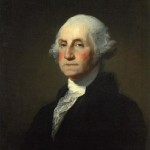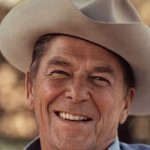
This piece is different than most. I usually try to lay out clear ideas on a subject of interest, and support it with logic and research.
Today, I want to simply express an opinion.
This election on Nov. 6th, 2012 is not about people, or parties, or issues. This election is about one central idea, and all the other issues and talking points and controversies flow from that central idea.
Barack Obama and Mitt Romney are not central to this debate. As I point out in this post, politicians are largely captive to public opinion, and to their supporters. They are vessels carrying the agendas of those who support them. The election, therefore, is not about the agenda of the candidate, but the agenda of his supporters.
On the ballot this Tuesday is really only one question: Will we take responsibility for ourselves?
Many other questions and answers flow from this one. Will we hold ourselves and our neighbors accountable for their actions? Will we allow our government to do to our neighbors what we would never do ourselves? Will we value our freedom, and pay the costs, or sell our freedom for a little “security”? Will we rely on what we earn, or will we demand our neighbors provide for us? Will we take full responsibility for our own choices, or will we expect our government to make many of our choices for us?
When I was a child, we presumed that the most precious thing we had was our freedom, and we understood that freedom came at a price. That price was not only the sacrifice of our soldiers, but also the cost of making mistakes. A free society must contain a measure of chaos, and a measure of danger. It comes with the territory.
The engine of our prosperity, and our amazing wealth—and we are tremendously wealthy—is our free enterprise system. The very markets that have been demonized in the last 4 years as “risky” and “corrupt” are the same ones that brought us the prosperity that raised our standard of living far beyond anywhere in the world, with an almost continuous record of progress for the last 50 years.
As Milton Friedman has pointed out, strong economies depend on freedom, and freedom depends on economic independence.
… and freedom also depends utterly on the discipline and virtue of the people.
On Tuesday, we will have a choice between two ideologies. One believes that freedom is less important than “security”. It believes that equality of results is paramount, and that evidence of unfairness can be found in every instance of inequality, and government must correct unfairness. Individual merit is little more than happenstance. Personal responsibility is an exception, not a rule. It is something to be considered an ideal, not a requirement.
The other ideology is less well articulated, because the virtues of egalitarianism and compassion have clouded its vision. The latter ideology is coming to see, through the excesses of the current political environment, where the current ideology is taking us. It has no single champion, but a phalanx of groups, pundits and candidates grappling with the issues. They don’t have crystallized solutions, but they understand the central role of personal responsibility, the importance of individual merit, and how freedom, strictly limited government, and the wisdom of our founders is a far better foundation for our future.
On Tuesday we will make a choice. Will it be for leaders that will support personal responsibility and freedom, or leaders who will grow government, and try to buy our freedom from us with our neighbor’s wealth.
Choose well on Nov. 6th.





